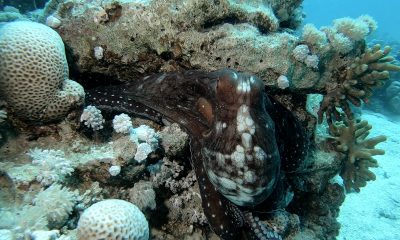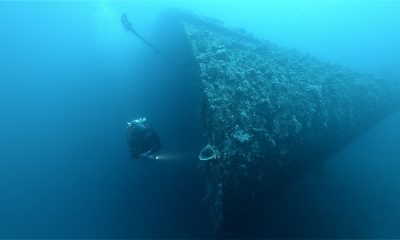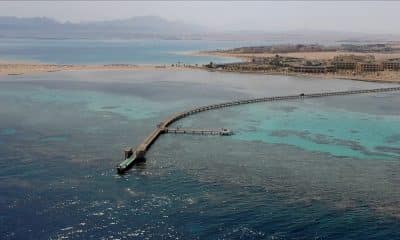Marine Life & Conservation
12 steps to being an eco diver
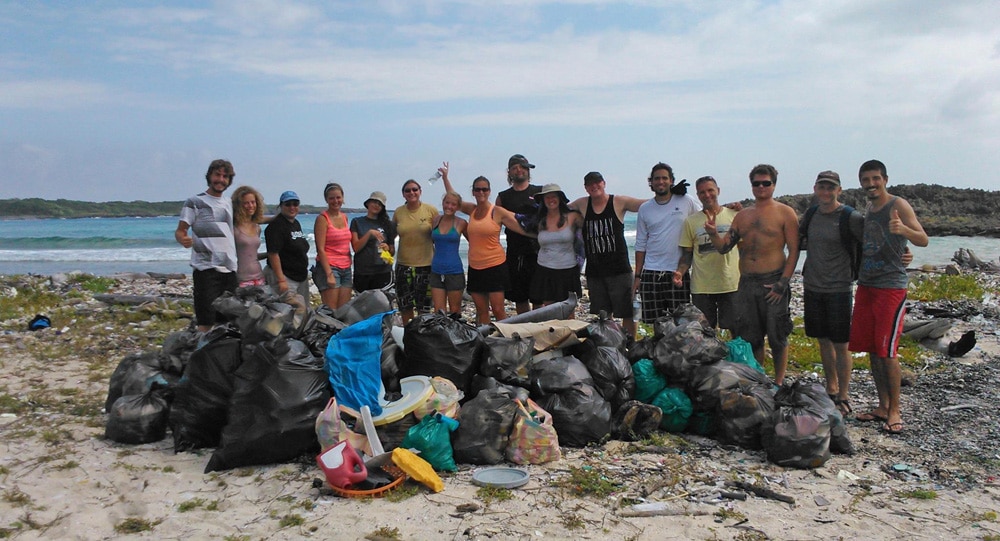
For most divers, I think we feel pretty privileged to get to see and enjoy the amazing underwater world. As the plight of our oceans and coral reefs becomes more prominent in the news and on social media, often divers find ourselves probably a bit more aware of the value of the life beneath the waves and the issues affecting it. Therefore, it can be quite distressing when we learn that not all of the negative impacts on coral reefs are from large scale human impacts like climate change and overfishing, but that in some areas, lots of damage comes directly from divers and diving tourism, particularly in those areas that experience a high density of divers year round.
So, how do we divers, who love our sport and the underwater world, overcome the negative impacts and turn our actions into positives?
Here’s a list of 12 easy things we can do to minimise our impact:
1. Be choosy about your dive centre
There are lots of dive centres out there going above and beyond to be green, teaching and supporting good dive practices and minimise their environmental impact. A little research before hand and you can find centres that give marine biology talks, do beach cleans and work on an environmentally-friendly basis. Generally I find I have a better time and get more from holidays like this. The Green Fins website is pretty helpful.
2. Buoyancy
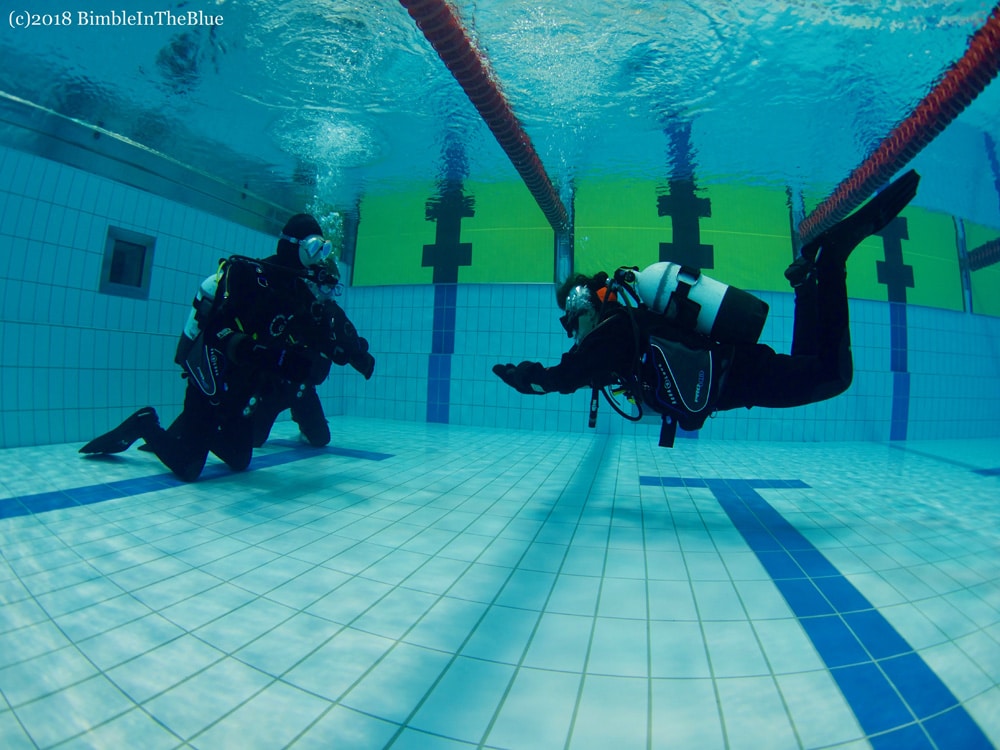
Buoyancy is massively important for both enjoying the dive, improving air consumption and also not trashing the environment you are diving in. Practice makes perfect, so you are never too good to try and improve; skills get rusty after a break even for experienced divers. There are lots of places offering courses specifically designed to improve buoyancy, so it’s a great excuse for more diving!
3. Do not touch anything
There may be an odd occasion you need to hold onto a rock if you’ve just run into a strong current or use a finger to stabilise yourself for a moment in an emergency. If you can pick a bit of rock without growth or a bit of dead coral to hold onto, this is best.
However if you are regularly holding onto stuff or bouncing off the bottom, then it’s time to go back to basics and get your buoyancy under control. If not for the sake of the environment, but yourself, particularly when you realise you just grabbed hold of a stonefish…
4. Reef safe sun screen
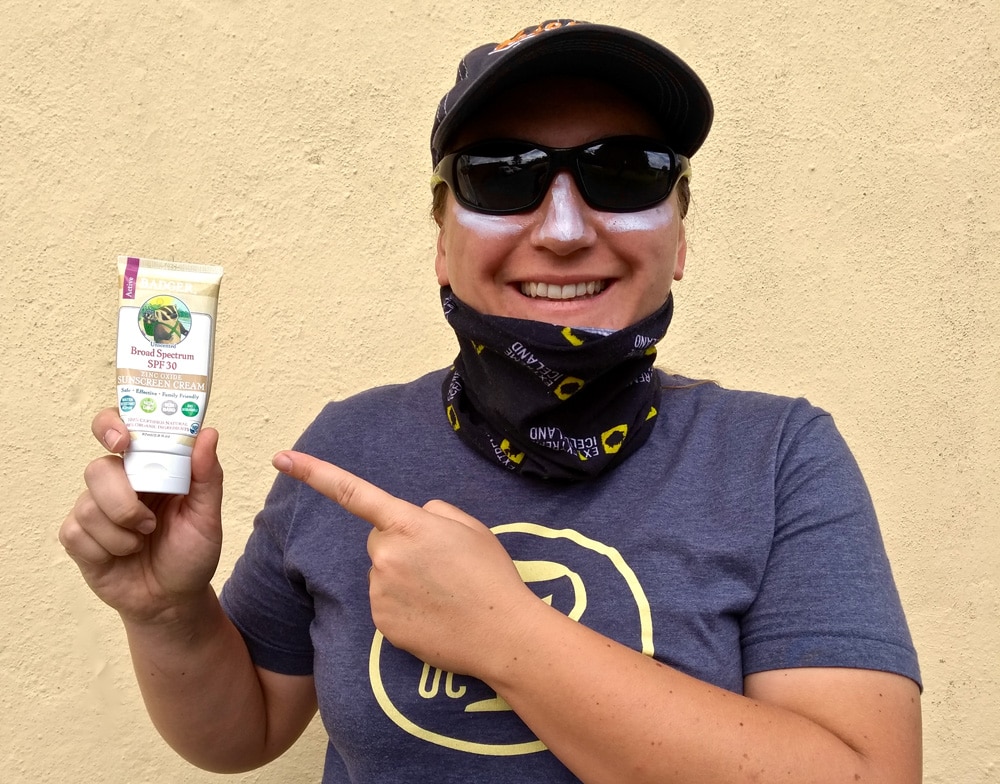
On a tropical dive holiday, chances are you will be using sunscreen to avoid sunburn and the associated health risks and pain that come with it. Many sunscreens contain oxybenzone, which is very bad news for reefs, as it kills coral. Since we know we will be in the water and some of the sunscreen will be washed off, by using a reef safe sunscreen, we ensure our diving activity doesn’t pollute the water for the corals we are there to see! For a list of Reef Safe Sunscreens click here! You could even forego the sunscreen entirely and wear a sun hat and UV-protective clothing instead.
5. Reusable water bottle
Keeping hydrated is a must in diving as hydrated divers are less likely to get the bends or suffer heat related issues in hot climates. By using a reusable water bottle, you can reduce the amount of single-use plastic entering the environment. Having your dive centre refill your own bottle it also often works our cheaper than buying bottled water from the shops.
6. Do not tip bad guiding
If your dive guide moved that frogfish/seahorse for you to get a photo, ask them not to touch or move anything. A photo is never worth killing something by stressing it out. If they guided you deeper than the original dive plan to show you something, or deeper than you are qualified/ comfortable going, ask to stick to the dive plan next time. Plan the dive, dive the plan. Ultimately you are responsible for your dive and your safety. Guides do what they think will make customers happy because happy divers tip. If your guide is acting like a cowboy, it’s probably because previous divers have rewarded this behaviour.
7. If you are a photographer, remember your surroundings
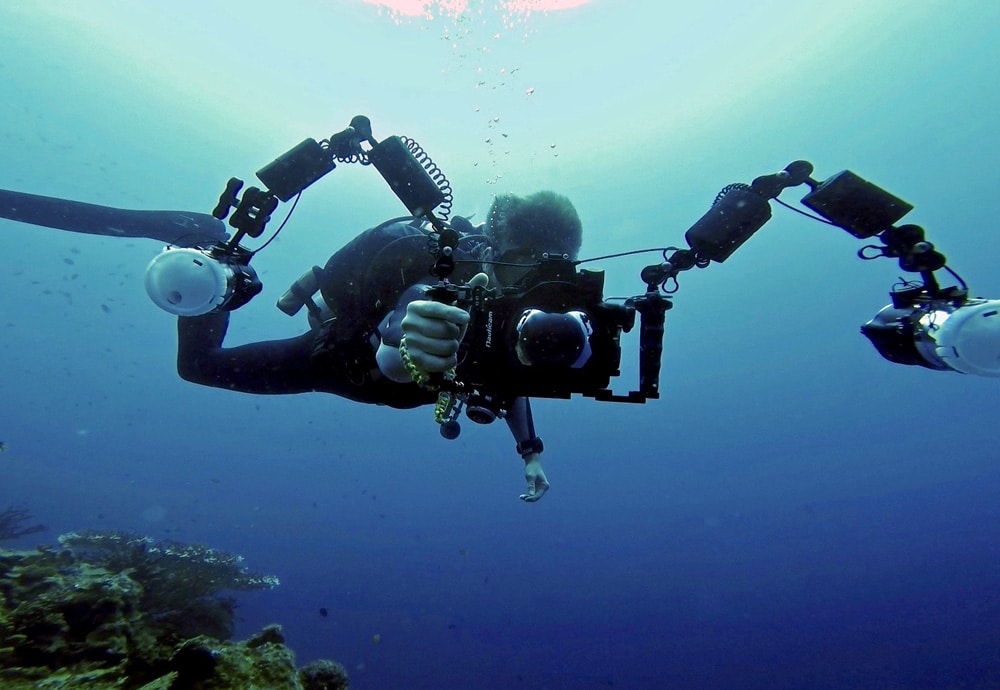
Never move anything, try not to touch coral or lie on the bottom. If you need to hold onto something to get your photo, then it’s back to work on your buoyancy before going in the water with a camera! Often taking a few well planned shots is best. Many creatures, such as seahorses are sensitive to light, so taking a few good photos and moving on ensures they are not permanently blinded by multiple strobe flashes. Also spare a thought for others in the dive group, by sharing the view of a nice critter, it reduces the likelihood of lots of divers crowding one spot and inevitably someone kicking something, causing damage and kicking up sand and silt.
8. Use spit, rather than washing up liquid or shampoo
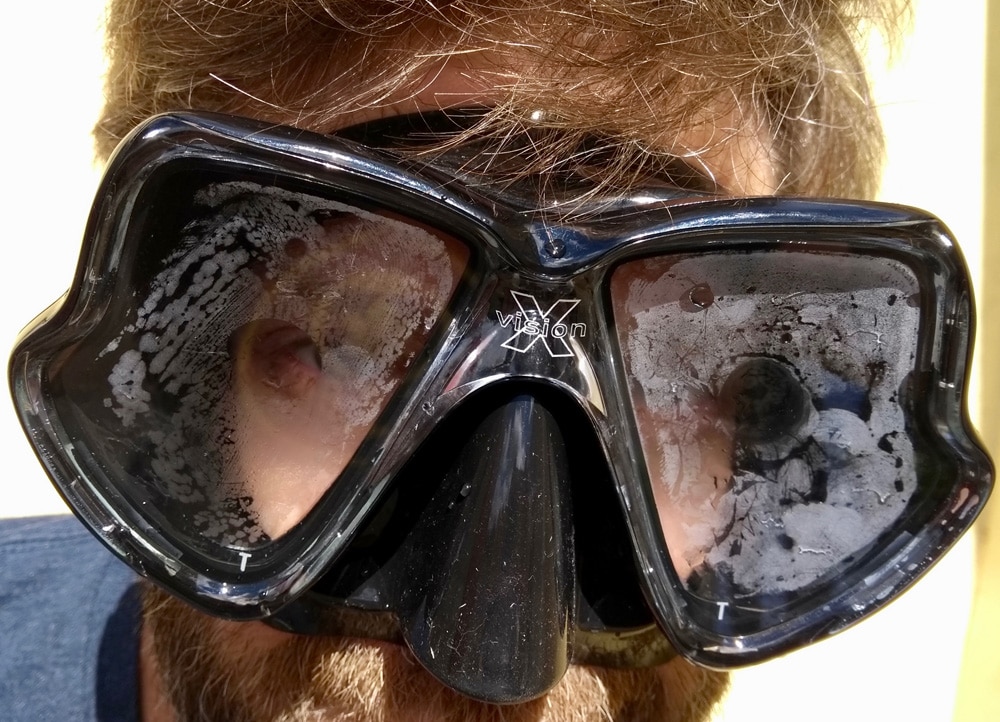
There are a few biodegradable defog options out there for anyone who’s spit is not very effective at keeping their mask fog free, but for the majority of people spit works really well! It’s free, it doesn’t need time to break down to do no harm to the environment and you always have it with you!
9. Get involved in reef surveys or clean-ups
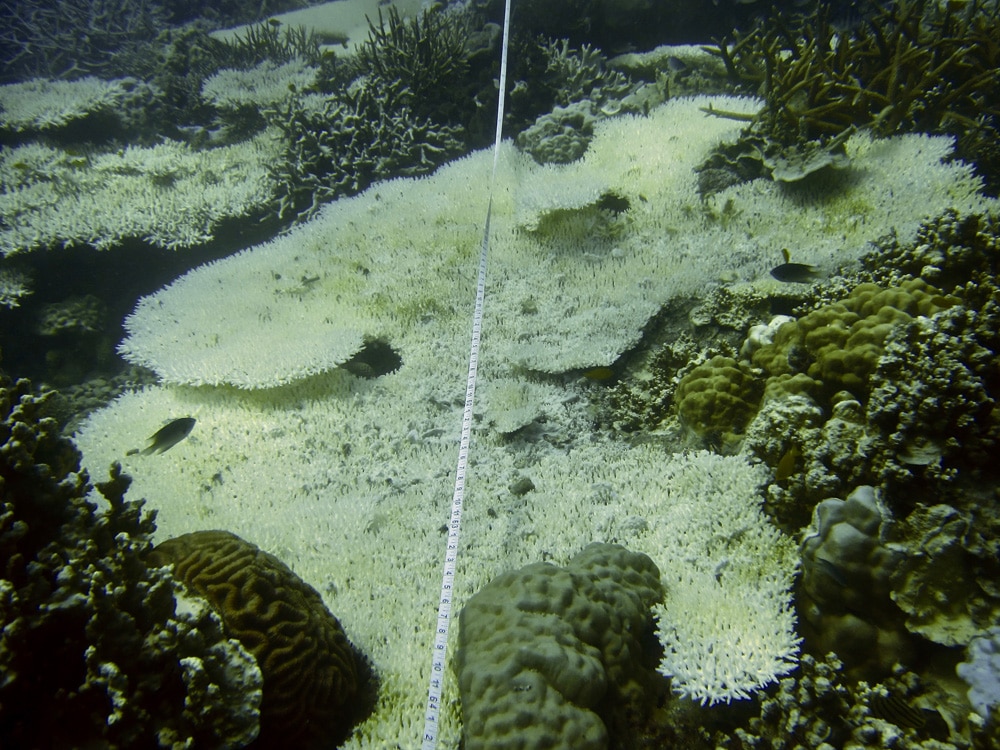
One of the absolute best ways to be sure you are having a positive impact is to give up some of your time to help clean up an area. Many dive centres and organisations will very gladly accept your help on a local beach clean or dive clean up. If you know your fish and coral you can also help by taking part in reef surveys, such as Seasearch, REEF, Reef Check or Coral Watch. Many eco dive centres teach these courses if you would like to hone your underwater ID skills and help gather data for science and conservation.
10. Think about your impact on land
Even though many of us wish we could live underwater sometimes, we do spend the majority of time on land and here we can make a huge difference that will help all environments and our oceans. We can reduce our dependence on single – use plastics that may end up in the ocean, by using reusable water bottles, coffee cups, straws and bags made from recyclable plastics or even better, alternatives like bamboo. Also, have a think about where you stay when on dive holidays, does the hotel try to avoid single use plastics? Do they recycle? What happens to the waste water? Again, with a little research good, affordable eco options can be found for accommodation. It’s always good to know you won’t be diving in water that your waste is going into!
11. Support initiatives to clean up the oceans
There are many great organisations out there attempting to make a difference. We can join charities like Marine Conservation Society, or buy products from clean up programmes. Fourth Element have a new swimwear range made from ghost netting and there are some very good looking flip flops made from recycled ocean plastics. New things are coming on the market all the time, they look good and are a great example of reusing and recycling. Have a search for what is going on near you and how you can support the movement.
12. Try not to eat the seafood you have just been diving with! (The invasive Caribbean lionfish aside).
If you were wondering why there weren’t as many fish as the last time you dived here, and you then go and order a reef fish for lunch at the hotel…you may have found your answer! For a guide on what is sustainable on most menu’s and what to avoid click here. For recipes for cooking the delicious and invasive Caribbean Lionfish, click here!
Marine Life & Conservation
Leading UK-based shark conservation charity, the Shark Trust, is delighted to announce tour operator Diverse Travel as a Corporate Patron

 Corporate Patrons provide a valuable boost to the work of The Shark Trust. The Trust team works globally to safeguard the future of sharks, and their close cousins, the skates and rays, engaging with a global network of scientists, policymakers, conservation professionals, businesses and supporters to further shark conservation.
Corporate Patrons provide a valuable boost to the work of The Shark Trust. The Trust team works globally to safeguard the future of sharks, and their close cousins, the skates and rays, engaging with a global network of scientists, policymakers, conservation professionals, businesses and supporters to further shark conservation.
Specialist tour operator Diverse Travel has operated since 2014 and is committed to offering its guests high quality, sustainable scuba diving holidays worldwide. Working together with the Shark Trust will enable both organisations to widen engagement and encourage divers and snorkellers to actively get involved in shark conservation.
“Sharks are truly at the heart of every diver and at Diverse Travel, we absolutely share that passion. There is nothing like seeing a shark in the wild – it’s a moment that stays with you forever!” says Holly Bredin, Sales & Marketing Manager, Diverse Travel.
“We’re delighted to celebrate our 10th year of business by becoming a Corporate Patron of the Shark Trust. This is an exciting partnership for Diverse and our guests. We will be donating on behalf of every person who books a holiday with us to contribute towards their vital shark conservation initiatives around the world. We will also be working together with the Trust to inspire divers, snorkellers and other travellers to take an active role – at home and abroad – in citizen science projects and other activities.”
Paul Cox, CEO of The Shark Trust, said:
“It’s an exciting partnership and we’re thrilled to be working with Diverse Travel to enable more divers and travellers to get involved with sharks and shark conservation. Sharks face considerable conservation challenges but, through collaboration and collective action, we can secure a brighter future for sharks and their ocean home. This new partnership takes us one more valuable step towards that goal.”
For more information about the Shark Trust visit their website here.
For more about Diverse Travel click here.
Marine Life & Conservation
Shark Trust Asks Divers to help with Shark Sightings this Global Citizen Science Month

 Whether you are stuck for ideas of what to do with the kids or are off on the dive trip of your dreams. You can get involved in Citizen Science Month and help the Shark Trust by providing vital data about sharks are rays both close to home and further afield.
Whether you are stuck for ideas of what to do with the kids or are off on the dive trip of your dreams. You can get involved in Citizen Science Month and help the Shark Trust by providing vital data about sharks are rays both close to home and further afield.
In addition to reporting the sharks and rays you see on your dives, the eggcases you find on the beach, the Shark Trust is looking for some specific data from divers who are asked to report any Oceanic Whitetip and Basking Sharks.
Oceanic Whitetip Sharks
The Shark Trust are looking specifically for Oceanic Whitetip Shark sightings over the coming weeks and months. So, if you are diving anywhere in the world, please report your sightings via the website or app.
Website: https://recording.sharktrust.org/
App: Search The Shark Trust in your app store
The Oceanic Whitetip. Known for their incredibly long dorsal and pectoral fins, this species was once the most abundant oceanic-pelagic species of shark on the planet.
Large and stocky, they are grey or brown above, and white below and famous for their huge rounded first dorsal fin and paddle-like pectoral fins. The fins also highly prized within the shark fin trade. Whilst they are mostly solitary, Oceanic Whitetips do occasionally hunt in groups.
An inquisitive species, they were easy prey for fisheries. Combined with their low reproductive rate, they were inevitably at high risk of population depletion. And declines of up to 99% have been reported in certain sea areas. They are listed as Critically Endangered on the IUCN Redlist (2019).
Conservation efforts to discourage further declines include listing on CITES Appendix II and CMS Appendix I. They’re also the only species prohibited from take by all the Tuna RFMOs (Regional Fisheries Management Organisations). However, these measures do not mean that Oceanic Whitetips are not still caught – whether targeted or as bycatch – in some parts of the world. With populations declining at such a high rate, effective implementation of management measures is essential to ensure that the species can recover.
If you are lucky enough to get an image of an Oceanic Whitetip and you record your sighting on the Shark Trust app or website YOU CAN WIN! All images submitted with sightings, that also give consent to use in conservation messaging, will be in with a chance to win an Oceanic Whitetip T-shirt and mug. The competition will run until the end of “Shark Month” in July – so keep those sightings (and images) coming in.
Basking Sharks
Basking Shark (Cetorhinus maximus) season is upon us, and the Shark Trust is asking everyone to keep an eye out for these majestic giants over the summer months. If you see any, you can record your sighting to the Basking Shark Sightings database.
Each year, these mighty fish return to British waters to feed on plankton. You may see one, (or a few if you’re really lucky) from around April-October. They can be seen feeding at the surface of the water, where they look like they’re basking in the sun. Thus, their name!
Sighting hotspots around the British Isles include southwest England, Isle of Man, north coast of Ireland, and western Scotland. The Sea of the Hebrides is the most prolific sightings area in Scotland, but they have been spotted all around the coast and have even ventured into some of the sea lochs. The Shark Trust has received thousands of sightings since the Basking Shark project began, but more data is needed to truly understand what is going on with population numbers and distribution. You can help by recording your sightings this summer.
Great Eggcase Hunt
The Shark Trust has an Easter Egg Hunt with a difference for you to try. Take part in the Great Eggcase Hunt and get involved with a big citizen science project that helps shark, ray and skate conservation. And it’s an enjoyable activity for all the family.
The Shark Trust also want snorkellers and divers to record their underwater eggcase findings. Underwater records help pinpoint exactly where sharks and skates are laying their eggs and can help link to beach records. Learning the depth and substrate that they lay on also helps better understand the species.
Find out more: https://www.sharktrust.org/great-eggcase-hunt
Whether you are diving, snorkelling or exploring on the beach you can take part in Citizen Science Month and get actively involved in shark and ray conservation. Find out more: www.sharktrust.org
-

 News3 months ago
News3 months agoHone your underwater photography skills with Alphamarine Photography at Red Sea Diving Safari in March
-

 News2 months ago
News2 months agoCapturing Critters in Lembeh Underwater Photography Workshop 2024: Event Roundup
-

 Marine Life & Conservation Blogs2 months ago
Marine Life & Conservation Blogs2 months agoCreature Feature: Swell Sharks
-

 Blogs2 months ago
Blogs2 months agoMurex Resorts: Passport to Paradise!
-

 Blogs2 months ago
Blogs2 months agoDiver Discovering Whale Skeletons Beneath Ice Judged World’s Best Underwater Photograph
-

 Gear News3 months ago
Gear News3 months agoBare X-Mission Drysuit: Ideal for Both Technical and Recreational Divers
-

 Gear Reviews2 months ago
Gear Reviews2 months agoGear Review: Oceanic+ Dive Housing for iPhone
-

 Marine Life & Conservation2 months ago
Marine Life & Conservation2 months agoSave the Manatee Club launches brand new webcams at Silver Springs State Park, Florida









